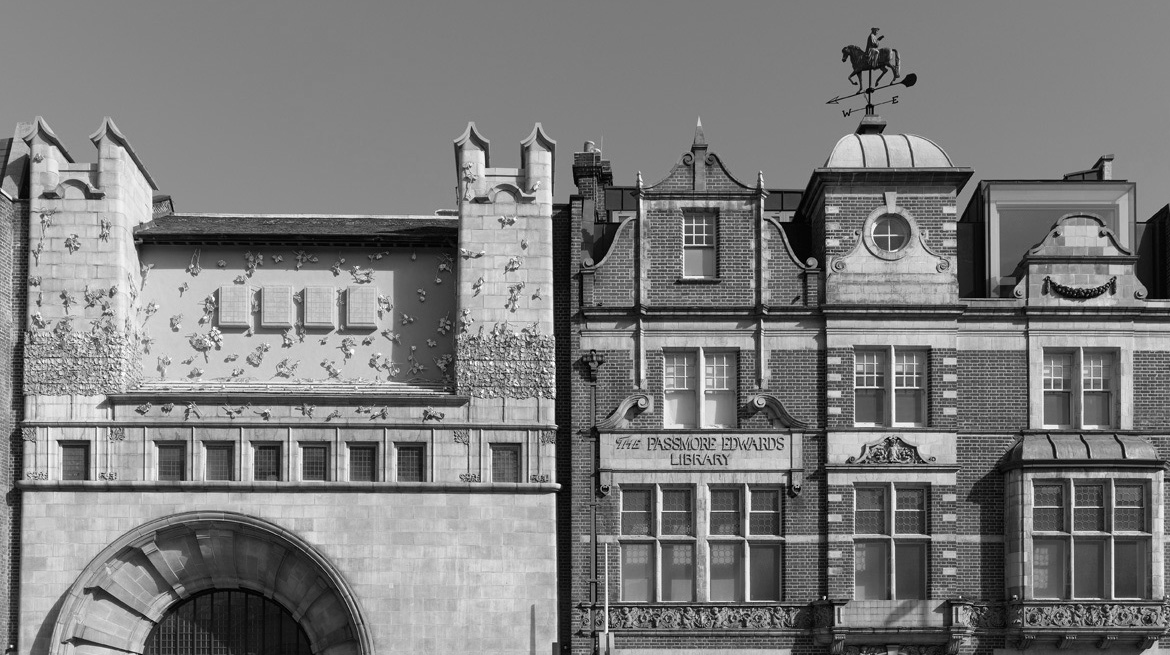
Artist Corin Sworn is the winner of the prestigious Max Mara Art Prize for Women 2013-2015.
The Max Mara Art Prize for Women in collaboration with the Whitechapel Gallery celebrates the aesthetic and intellectual contribution that women artists bring to the contemporary art scene. The unique initiative set up to promote and nurture female artists based in the United Kingdom, enables artists to develop their potential with the gift of time and space. The winning artist is given the opportunity to create new works of art inspired by a six month residency in Italy. The resulting works are then shown in Britain and Italy.
The Prize is awarded biennially to one UK based artist who has not previously had a major survey exhibition. Winners receive a fully funded six-month residency in Italy, as well as funding to realise a new work or works that will be exhibited at the Whitechapel Gallery and may be acquired by the Collezione Maramotti, Reggio Emilia, Italy.
For each Prize a judging panel of four art-world professionals, chaired by Iwona Blazwick, devise a short-list of between three and five artists. The short-listed artists are invited to the Whitechapel Gallery to make a presentation about their practice and the work or works they would make during or resultant from their Italian residency and funding.
Sworn’s film and installation works are often created through a mesh of fragmented references, suggested memories and oral histories. Her winning proposal for the Max Mara Art Prize for Women draws from the rich history and elaborate costumes of the Commedia dell’Arte, reviving the improvised theatrical comedies performed by acting troupes who toured Italy from the 16th century onwards. The new work will also reflect her continued interest in exploring the stories around migration.
Sworn’s bespoke residency is divided between three of Italy’s greatest cities, Rome, Naples and Venice. In Rome, she will spend three months immersed in the diverse art scene and cultural history of the city whilst researching the project and looking at the relationship between the Commedia dell’Arte and Italian cinema. For the next phase of the residency, she will be based in the newly restored Museo d’Arte Contemporanea Donna Regina Napoli (MADRe), located in a stunning 19th century palazzo in the centre of Naples, where the Commedia dell’Arte flourished through forms of street and popular theatre in the past. Her experience will end in the libraries and archives of Venice, at Fondazione Bevilacqua la Masa, founded in 1898 and home to one of the oldest artist residency programmes in Europe.
The shortlisted artists for the Max Mara Art Prize for Women 2013-2015 also included: Beatrice Gibson, Melanie Gilligan, Judith Goddard, and Philomene Pirecki. The artists were selected for the Prize by a judging panel chaired by Iwona Blazwick OBE, former Director of Whitechapel Gallery. The panel included Pilar Corrias, Director of Pilar Corrias Gallery, London; Candida Gertler, Co-founder and Director, Outset Contemporary Art Fund; Runa Islam, artist and Lisa Le Feuvre, Writer, Curator and Head of Sculpture Studies, Henry Moore Institute.
This year’s shortlisted artists work across various media including installation, painting, writing, performance, film and music. For more information, read the full press release.
Previous winners include Margaret Salmon, film-maker; Hannah Rickards who works with sound, video and installation; Andrea Büttner who makes films and installations including large-scale woodcuts and Laure Prouvost whose Max Mara Art Prize exhibition Farfromwords was on show at the Collezione Maramotti.
The Max Mara Art Prize is not open submission.
For further information about the Max Mara Art Prize for Women, please contact Bryony Harris, Assistant Curator: Special Projects
Email: bryonyh@whitechapelgallery.org
Image: Iwona Blazwick OBE, Corin Sworn and Dott. Luigi Maramotti CEO Max Mara. On the occasion of the announcement of Corin Sworn as winner of the Max Mara Art Prize for Women at the Italian Embassy, 23 January 2014. Credit: Dan Weill.